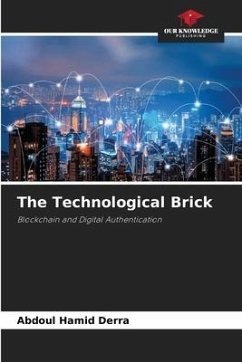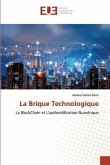The blockchain offers a transparent and auditable digital system, which ensures the integrity of documents, deeds or titles exchanged, as well as the timestamping and scheduling of all transactions concerning them. Authentication without identification on the networks proves to be much more protective of our personal data by the minimization of the data communicated that it allows: exposure to malicious intent and attacks of any kind is much reduced. The blockchain thus appears as a technological brick that complements the functionalities of existing systems, including centralized systems, by offering: an efficient technology for the exchange of transactions, the exchange of authenticated proofs or even certificates. In a distributed ledger, any observer can verify that each action modifying the state of the system is valid: in accordance with the set of rules, accepted by all, which govern the system.
Bitte wählen Sie Ihr Anliegen aus.
Rechnungen
Retourenschein anfordern
Bestellstatus
Storno








